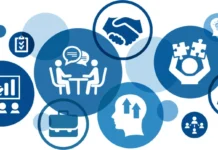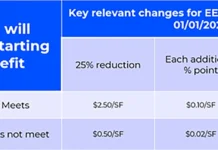by Christopher Kleck, President, Pro Plastics Sales & Service, Inc.
Ask any engineer to discuss the process of selecting equipment for purchase and he will point to vendor quotations, on-site testimonials and spreadsheets with important data regarding cycle times and through-puts. It seems that the attention to capital purchase is paramount. However, attention to what happens after the sale often is only an after-thought.
Finding out months (or years) later that the supplier chosen at the time of purchase no longer carries that particular equipment line or has never serviced it before is hardly efficient. One of the areas to understand when beginning the exploration and quotation process should be service, support, and training.
Evaluating Vendors Based on Service
Service agreements are more than support, training or preventative programs – they represent a relationship between a processor and its vendors. A company charged with servicing the products it sells has a vested interest after the sale in helping to meet its customer’s production goals. Smart equipment suppliers also know that providing efficient service and investing in training sets them apart from other equipment suppliers. Service and training create partnerships with processing companies and establish a long-term commitment.
Before assuming that vendors have experience when it comes to service, ask the following questions:
- Have they demonstrated an understanding of the manufacturing processes used by the potential customer, and can they show proof of expertise in this area with current testimonials and references?
- Is there an opportunity for growth with the vendor? Have they demonstrated an investment into advancing technologies?
- Are they capable of servicing equipment in a production line, purchased from other vendors?
Evaluating Support and Training
When considering support for maintenance issues, the following should be reviewed with a potential vendor.
Tech Support Line – When equipment has problems, is access provided to a service technician who can troubleshoot over the phone? This also can save time in the event of a service call, since the vendor will have the tools and skills to make the repairs when he arrives, rather than diagnosing the problem on site.
Error Recovery – Providing an alternative to keep your operation up-and-running while resolving an error is important. When a robot begins to drop parts or an injection molding machine’s cavity shows errors, is there an intermediate plan in place until service arrives?
Preventative Maintenance Program – Maintenance is either handled by in-house staff or by an outside firm. Review a list of scheduled preventative maintenance tasks with the outside firm, or determine if routine maintenance tasks really can be handled in-house effectively. Clarify these issues:
- What equipment is covered? Will the maintenance cover everything on the plastics processing line, or just a select few pieces of equipment?
- How does equipment added-to or removed-from the production line change the program?
- Who controls warranty work?
- Are detailed service logs provided to validate the service?
- Are guiding documents provided that define the maintenance to be performed?
Preventative maintenance programs should be comprehensive and include the following:
- Testing of equipment
- Recording of the data gathered from equipment testing
- Identification of existing problems and overall equipment condition
- Repair of equipment
- Ordering of parts as necessary
- Follow-up with parts delivery
- Schedule parts installation
- Calibration etc. of equipment, with documentation
Before signing on the dotted line, the specifics regarding services and execution should be well understood, including the difference between emergency service and standard service agreements.
Beyond basic maintenance, several factors exist which also should be considered. In addition, a service provider should be quick to provide a list of parts to keep on-site, and should have a well-stocked parts department to help the customer avoid delays in a return to productivity. A vendor also should be able to assist its customers as technology changes, or as the customer takes on additional technology or expands – in both implementing the technology and training.
Training is the key to efficiency. Training is the first line of defense in preventing errors, material waste, and downtime. Vendors that train their customers have invested in classroom equipment, training equipment, and time, representing a commitment for the long-term.
The days of thinking of equipment purchases without consideration for service, support, and training are gone. Partnering with suppliers will prove cost effective in both the short term (production downtime) and long-term (future growth).
Christopher Kleck is president of Pro Plastics Sales & Service, Inc. Pro Plastics has been supplying the plastics industry with state-of-the-art injection molding presses, extrusion equipment, and blow molding equipment since 1981. In addition to primary and auxiliary equipment for plastics processing, Pro Plastics offers complete engineering design, warranty and non-warranty service, training, and installation of all of its equipment. The company also provides complete service on competitive equipment. Pro Plastics takes pride in presenting its long-term customer relationships as references to prospective buyers. Contact Pro Plastics at (800) 589-7767 or www.proplasticsusa.com.




